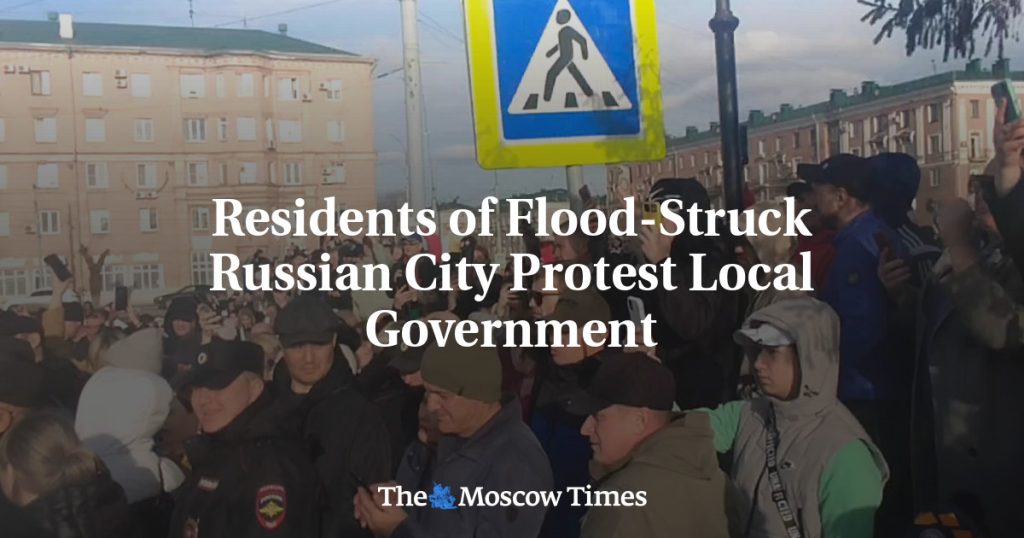The city of Orsk in the Ural Mountains was heavily impacted by severe flooding, with much of the area submerged underwater after the Ural River burst through a dam embankment. This prompted thousands of residents to evacuate, with water levels continuing to rise and threaten the nearby regional capital of Orenburg. In response to what they perceived as inaction by local authorities, residents of Orsk staged protests against the administration on Monday, with around 100 people gathering in the central square to chant “Shame! Shame! Shame!” The protests were fueled by frustration over low compensation for property damage and concerns about the structural deficiencies of the dam.
Regional prosecutors had warned residents against holding unauthorized meetings in relation to the floods, but the protests continued. Police attempted to disperse the crowd using loudspeakers, but some of the protest leaders were invited for private negotiations with Governor Denis Pasler. Orsk Mayor Vasily Kozupitsa addressed the crowd, while some protesters were seen appealing for President Putin’s direct intervention by shouting “Putin, Help!” Despite ordering a government commission to oversee the flood response, Putin himself did not plan to visit the affected area, which drew criticism from some residents during the floods.
As the protests continued, images and videos emerged of the unrest in Orsk, highlighting the frustration and anger of the residents towards the authorities. The situation was further exacerbated by the perceived lack of direct involvement or support from President Putin, despite his government’s efforts to manage the crisis. With the regionwide state of emergency in place and ongoing concerns about the water levels and the safety of the affected areas, the protests reflected the growing discontent and desperation of the residents who felt abandoned and neglected in the face of the disaster.
The flooding in Orsk and the subsequent protests shed light on the challenges faced by communities in Russia dealing with natural disasters and the response of local and national authorities. The lack of adequate compensation for property damage, concerns over infrastructure safety, and the absence of direct leadership from President Putin fueled the discontent and frustration of the residents. The protests served as a public outcry against perceived inaction and indifference from the government, as residents demanded better support, assistance, and accountability from their officials in managing the aftermath of the floods and ensuring the safety and well-being of the affected population.
Despite the efforts of regional and local authorities to address the flooding and its consequences, the protests in Orsk underscored the deep-seated grievances and distrust among residents towards the government’s response to the disaster. The chants, slogans, and appeals for help reflected the urgent need for immediate assistance and intervention to address the ongoing challenges faced by the community. The protests also highlighted the broader issues of transparency, communication, and accountability in disaster management, as residents called for greater engagement and support from the authorities to rebuild and recover from the devastation caused by the flooding in Orsk.


